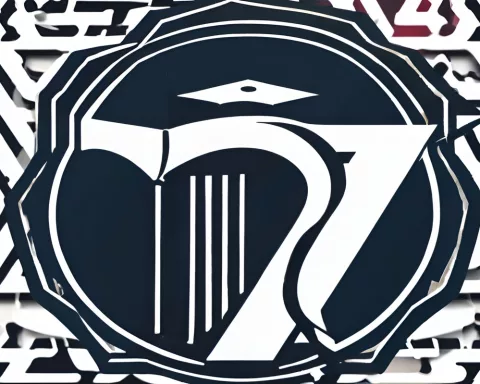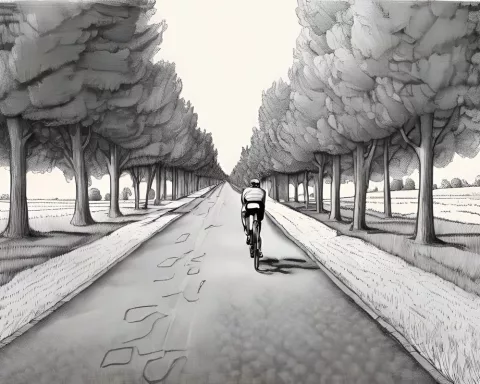Johann Rupert, the wealthiest person in South Africa, is using his money to uplift disadvantaged communities through initiatives such as the Khaya Lam project. Together with his wife and First National Bank, Rupert established the Free Market Foundation to address the impacts of apartheid. The foundation’s primary focus is the Khaya Lam Land Reform Project, which aims to convert apartheid-era leasehold titles into freehold titles, enabling individuals to secure loans and pursue economic opportunities. Rupert’s philanthropic endeavors serve as a blueprint for aspiring philanthropists worldwide to effect tangible change in their communities.
What is Johann Rupert’s philanthropic mission?
Johann Rupert, the wealthiest person in South Africa, is utilizing his substantial fortune to champion social elevation through bold endeavors such as the Khaya Lam project. Together with his wife, Gaynor, and First National Bank (FNB), Rupert established the Free Market Foundation, which focuses on addressing the lingering impacts of apartheid on marginalized communities. The foundation’s primary initiative is the Khaya Lam Land Reform Project, aimed at converting apartheid-era leasehold titles into freehold titles.
Johann Rupert, the wealthiest person in South Africa and owner of Richemont, a luxury goods company, is utilizing his substantial fortune to champion social elevation through bold endeavors such as the Khaya Lam project. With a net worth of $11.8 billion as reported by Statista, Rupert’s dedication to philanthropy demonstrates his unwavering commitment to enhancing the lives of disadvantaged South Africans.
The Khaya Lam Project: Transforming Lives
Together with his wife, Gaynor, and First National Bank (FNB), Rupert established the Free Market Foundation, which focuses on addressing the lingering impacts of apartheid on marginalized communities. The foundation’s primary initiative is the Khaya Lam Land Reform Project, aimed at converting apartheid-era leasehold titles into freehold titles. Khaya Lam, which translates to “My Home” in isiXhosa, embodies the project’s central objective of empowering people with legitimate title deeds, allowing them to secure loans and pursue future opportunities.
The Significance of Title Deeds
David Ansara, CEO of the Free Market Foundation, explains that numerous South African families have built modest homes but lack the necessary titles, leaving them in the position of tenants. The process of transferring title deeds can be expensive, with fees reaching R6,500 for a modest R100,000 property. This cost is often unaffordable for the elderly, single-parent households, and the unemployed. The Khaya Lam initiative strives to ease these financial constraints, assisting underprivileged individuals in gaining rightful ownership of their homes.
A Unified Effort
Though Johann Rupert and his family have made substantial contributions to the Khaya Lam project, they are not the only benefactors. In collaboration with other supporters, the initiative has successfully funded 10,000 title deeds in recent years. This combined philanthropic effort exemplifies the strength of individuals and organizations working in unison to effect significant, enduring change.
A History of Giving: Johann Rupert’s Philanthropy
Rupert’s philanthropic journey reaches beyond the Khaya Lam project. In 2018, he financed 70 title deeds for underprivileged Karoo residents, showcasing his continued commitment to social elevation in South Africa. This preceding initiative, albeit smaller in scope, set the stage for the more comprehensive Khaya Lam project.
The Far-reaching Impact of Empowerment
Rupert’s generosity in providing 10,000 homes and land deeds to disadvantaged South Africans is not only an act of kindness; it is an investment in these communities’ futures. By reinstating rightful property ownership, individuals gain the ability to build wealth and pursue economic opportunities, ultimately benefiting their families and communities. The Khaya Lam project holds the potential to generate a domino effect of positive change, lifting whole communities from poverty and toward a brighter tomorrow.
A Blueprint for Aspiring Philanthropists
Johann Rupert’s philanthropic endeavors serve as a motivating example for other wealthy individuals worldwide. By employing his riches to address deep-rooted social and economic issues, Rupert illustrates the power of generosity and cooperation in bringing about meaningful change. The Khaya Lam project, along with his previous initiatives, underscores the potential for philanthropy to revolutionize lives and entire communities.
The Road to Progress
As Johann Rupert persists in harnessing his wealth for social advancement, his actions act as a beacon of hope for marginalized communities in South Africa. The Khaya Lam project’s success in providing 10,000 homes and title deeds mirrors not just the magnitude of Rupert’s generosity, but also his unrelenting dedication to effecting tangible change in the lives of countless South African families. With philanthropy playing an increasingly vital role in combating poverty and inequality, the tale of Johann Rupert and the Khaya Lam project will undoubtedly inspire a new generation of philanthropists to follow his lead.
How is Johann Rupert using his wealth for social elevation in South Africa?
Johann Rupert is using his wealth to uplift disadvantaged communities through initiatives such as the Khaya Lam project. Together with his wife and First National Bank, Rupert established the Free Market Foundation to address the impacts of apartheid. The foundation’s primary focus is the Khaya Lam Land Reform Project, which aims to convert apartheid-era leasehold titles into freehold titles, enabling individuals to secure loans and pursue economic opportunities.
What is the Khaya Lam Land Reform Project?
The Khaya Lam Land Reform Project is an initiative started by Johann Rupert, his wife, and First National Bank to enable individuals to convert apartheid-era leasehold titles into freehold titles. The initiative is aimed at empowering people with legitimate title deeds, allowing them to secure loans and pursue future opportunities.
Why are title deeds significant in South Africa?
Numerous South African families have built modest homes but lack the necessary title deeds, leaving them in the position of tenants. The process of transferring title deeds can be expensive, with fees reaching R6,500 for a modest R100,000 property. This cost is often unaffordable for the elderly, single-parent households, and the unemployed. The Khaya Lam initiative strives to ease these financial constraints, assisting underprivileged individuals in gaining rightful ownership of their homes.
How many title deeds has the Khaya Lam project funded?
In collaboration with other supporters, the Khaya Lam project has successfully funded 10,000 title deeds in recent years.
What is the significance of Johann Rupert’s philanthropy?
Johann Rupert’s philanthropic endeavors serve as a motivating example for other wealthy individuals worldwide. By employing his riches to address deep-rooted social and economic issues, Rupert illustrates the power of generosity and cooperation in bringing about meaningful change. The Khaya Lam project, along with his previous initiatives, underscores the potential for philanthropy to revolutionize lives and entire communities.
How does the Khaya Lam project benefit South African communities?
By reinstating rightful property ownership through the Khaya Lam project, individuals gain the ability to build wealth and pursue economic opportunities, ultimately benefiting their families and communities. The project holds the potential to generate a domino effect of positive change, lifting whole communities from poverty and toward a brighter tomorrow.
What other philanthropic initiatives has Johann Rupert financed?
In 2018, Johann Rupert financed 70 title deeds for underprivileged Karoo residents, showcasing his continued commitment to social elevation in South Africa.
How can philanthropy combat poverty and inequality?
Philanthropy plays an increasingly vital role in combating poverty and inequality, as demonstrated by Johann Rupert’s philanthropic endeavors. With the power of generosity and cooperation, philanthropy has the potential to bring about meaningful change in the lives of countless individuals and entire communities.












